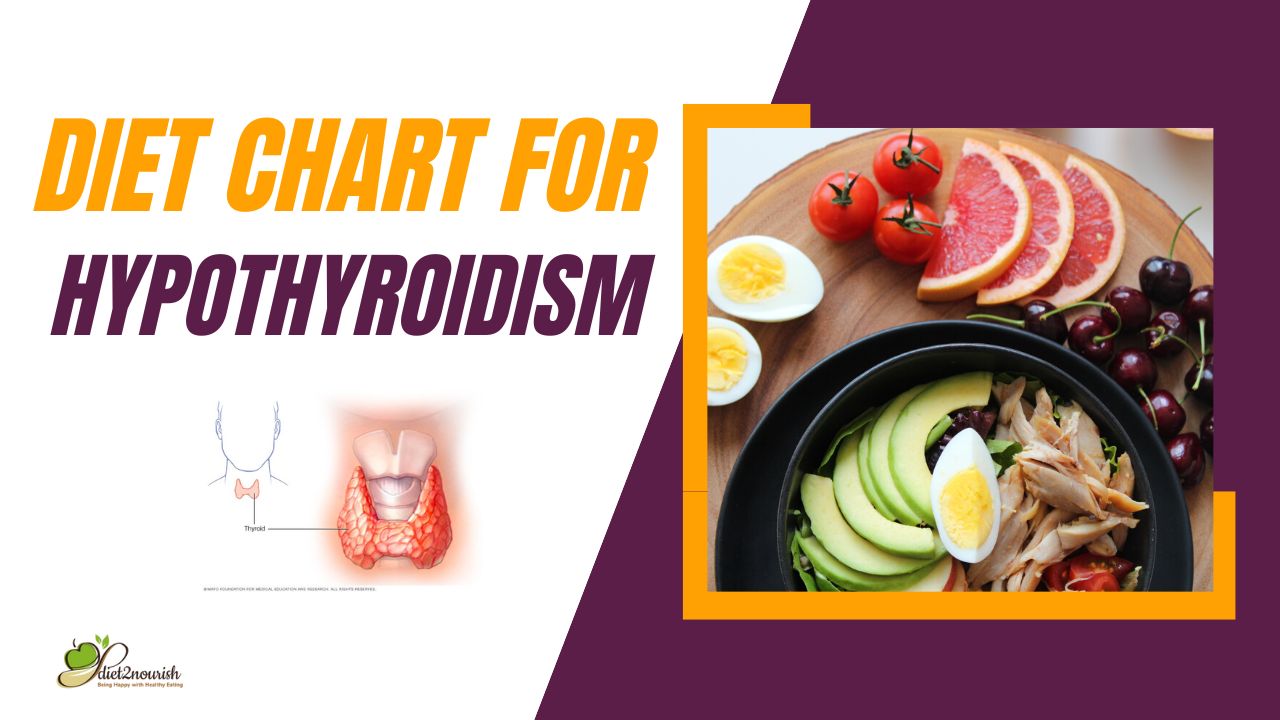Quick and Easy Fix For Your HYPOTHYROIDISM DIET CHART
Hypothyroidism is a condition in which the thyroid gland does not produce enough hormones, leading to a slower metabolism and a range of symptoms such as fatigue, weight gain, and sensitivity to cold. Diet can play an important role in managing hypothyroidism by providing the body with the nutrients it needs to support healthy thyroid function. Here is a sample hypothyroidism diet chart to help you get started.
Breakfast: A balanced breakfast is important for providing the body with energy and nutrients to start the day. Try a bowl of oatmeal with almond milk, chopped nuts, and fresh fruit. Oatmeal is high in fiber, which can help regulate blood sugar levels and support healthy digestion. Nuts are a good source of healthy fats and protein, while fruit provides vitamins and antioxidants.
Mid-morning snack: A mid-morning snack can help keep energy levels up and prevent overeating at lunchtime. Try a small handful of mixed nuts or a piece of fruit.
Lunch: For lunch, try a salad with mixed greens, grilled chicken or fish, and plenty of vegetables. Choose a variety of colorful vegetables, such as bell peppers, carrots, and cucumbers, to provide a range of nutrients. Add a tablespoon of olive oil and a squeeze of lemon juice for a healthy dressing.
Mid-afternoon snack: Another small snack can help prevent hunger and fatigue in the afternoon. Try a piece of fruit or a small serving of hummus with raw veggies.
Dinner: For dinner, try a serving of grilled or baked fish or chicken, along with a side of roasted or steamed vegetables. Choose vegetables that are high in fiber, such as broccoli, Brussels sprouts, or sweet potatoes, to support healthy digestion. Add a small serving of quinoa or brown rice for additional fiber and protein.
Dessert: If you want something sweet after dinner, try a small serving of fresh fruit or a piece of dark chocolate. Avoid high-sugar desserts, as they can lead to blood sugar imbalances and inflammation.
In addition to these meals, it is important to stay hydrated by drinking plenty of water throughout the day. Avoid sugary drinks and alcohol, as they can interfere with thyroid function and lead to dehydration.
When following a hypothyroidism diet chart, it is important to focus on nutrient-dense foods that provide the body with the vitamins, minerals, and antioxidants it needs to support healthy thyroid function. This includes:
- Protein: Choose lean sources of protein, such as chicken, fish, tofu, or legumes, to support healthy metabolism and energy levels.
- Healthy fats: Include sources of healthy fats, such as nuts, seeds, avocado, and olive oil, to support healthy brain function and hormone production.
- Fiber: Choose high-fiber foods, such as fruits, vegetables, whole grains, and legumes, to support healthy digestion and regulate blood sugar levels.
- Antioxidants: Choose foods that are high in antioxidants, such as berries, leafy greens, and colorful vegetables, to support healthy immune function and reduce inflammation.
In addition to these dietary recommendations, it is important to work with a healthcare provider to manage hypothyroidism. This may involve medication, lifestyle changes, and regular monitoring of thyroid function. By following a balanced hypothyroidism diet chart and working with a healthcare provider, you can manage your symptoms and support overall health and wellbeing.

Comments
Post a Comment